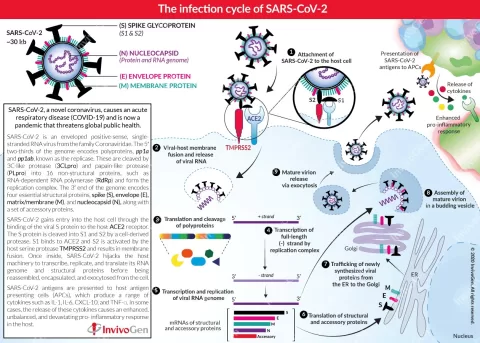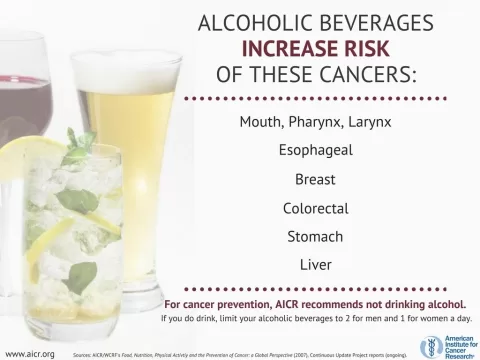The lost or changed sense of smell, commonly referred to as anosmia, can be an unsettling experience that affects many aspects of daily life. This condition can stem from various causes, including viral infections, allergies, and even the natural aging process. For those living with anosmia, the impact of smell loss extends beyond the inability to enjoy favorite foods or scents; it can alter emotional connections and personal safety. Furthermore, it’s not just humans who suffer from smell loss; dogs can also experience changes in their olfactory abilities, leading to behavioral changes. In this article, we will delve into the causes, effects, and available treatment options for anosmia, shedding light on this often-overlooked sensory impairment.
The alteration or complete absence of olfactory perception, often termed smell dysfunction, can significantly disrupt one’s quality of life. This sensory deficit, sometimes linked with conditions such as age-related decline or respiratory infections, poses challenges not only in enjoying culinary experiences but also in maintaining social interactions and personal safety. The psychological ramifications of losing one’s ability to smell are profound, affecting mood and emotional well-being. Moreover, animals, particularly dogs, also face similar sensory changes, raising questions about their health and behavior. This discussion will explore the various facets of smell dysfunction, including its causes, impacts, and emerging therapeutic approaches.
Understanding Anosmia: Causes and Symptoms
Anosmia, or the complete loss of smell, can arise from various causes, including nasal obstructions, head trauma, or viral infections like the common cold and COVID-19. Other medical conditions, such as sinusitis, allergies, and even neurological disorders like Parkinson’s disease, can contribute to this sensory loss. Symptoms of anosmia can vary, but individuals typically report a complete inability to detect odors, which can have a cascading effect on their taste perception and overall enjoyment of food.
In addition to the physical causes of anosmia, emotional and psychological factors can also play a role. For some, the loss of smell can be a traumatic experience that leads to feelings of isolation or depression. The inability to smell familiar scents—like a loved one’s perfume or the aroma of favorite dishes—can create a profound sense of longing and loss. Understanding these causes and symptoms is crucial for seeking effective treatment and support.
The Psychological Impact of Losing Your Sense of Smell
The psychological impact of losing your sense of smell can be extensive and multifaceted. Anosmia often leads to a decreased enjoyment of food, which can contribute to nutritional deficiencies and changes in eating habits. Moreover, the emotional connections tied to certain scents can lead to feelings of grief and loss. Studies have shown that individuals who suffer from anosmia may experience increased anxiety and depressive symptoms, highlighting the intricate link between our senses and emotional wellbeing.
Furthermore, the loss of smell can also affect social interactions. Scents play a vital role in how we connect with others, as they are often tied to memories and experiences. Individuals with anosmia may find it challenging to engage in social situations, such as dining out, where the olfactory experience is a significant aspect. Therefore, addressing the psychological impacts of anosmia is essential in treatment plans and support systems.
Treatment Options for Anosmia: What You Need to Know
Recent advancements in the treatment of anosmia have shown promise for those suffering from this condition. One innovative approach includes the use of platelet-rich plasma injections into the nasal cavities, which has shown positive results in restoring olfactory function, especially in cases linked to viral infections. These treatments aim to promote healing and regeneration of the olfactory sensory neurons, which can be damaged during infections.
In addition to medical treatments, olfactory training has emerged as a beneficial therapy. This involves repeated exposure to specific scents over time, helping to retrain the brain’s response to smell. Patients are encouraged to engage with a variety of scents, from strong aromas like coffee and citrus to more subtle ones like herbs. Such practices can potentially enhance the recovery process and significantly improve the quality of life for those dealing with anosmia.
Can Dogs Experience a Loss of Smell?
Just like humans, dogs can also experience a loss of smell, which can be due to various factors such as aging, disease, or viral infections. While dogs are known for their remarkable olfactory capabilities, conditions like canine distemper or chronic sinus infections can impair their sense of smell. Pet owners should be vigilant for subtle signs of this decline, such as changes in appetite, disinterest in familiar scents, or difficulty locating food.
Veterinary experts recommend regular check-ups for aging dogs to monitor their sensory health. Early detection of smell loss can lead to timely treatment of underlying health issues, which is crucial for maintaining a dog’s overall wellbeing. Understanding the factors that contribute to a dog’s olfactory decline can help owners provide better care and support for their furry companions.
The Connection Between Aging and Smell Loss
Aging is a natural process that affects the sensory systems, including the sense of smell. Older adults may experience a gradual decline in olfactory function, often due to a combination of factors such as medication side effects, chronic illnesses, and the natural degeneration of sensory neurons. This decline can lead to anosmia, which not only impacts the enjoyment of food but can also indicate potential health issues.
For dogs, similar aging-related changes can impact their olfactory abilities as well. As dogs age, they may face conditions that compromise their sense of smell, such as dental disease or cognitive decline. Recognizing these changes is crucial for ensuring quality of life for both humans and dogs, as a diminished sense of smell can significantly affect their interactions and experiences in the world.
Frequently Asked Questions
What are the common causes of lost or changed sense of smell (anosmia)?
The common causes of lost or changed sense of smell, or anosmia, include viral infections (like COVID-19), sinus infections, head injuries, neurological disorders, and aging. Certain medications and exposure to harmful chemicals can also contribute to the loss of smell.
What treatments are available for anosmia or loss of smell?
Treatments for anosmia depend on the underlying cause. Options may include nasal corticosteroids, olfactory training, and in some cases, platelet injections into the nasal cavity. Ongoing research aims to find innovative solutions for restoring the sense of smell.
How does the impact of smell loss affect daily life?
The impact of smell loss or anosmia can significantly affect daily life, diminishing the enjoyment of food, altering emotional connections, and posing safety risks (e.g., inability to detect smoke or gas leaks). It can also lead to psychological issues such as depression and anxiety.
Can dogs experience a loss of smell, and what causes it?
Yes, dogs can experience a loss of smell, which may result from aging, diseases, or infections like distemper. Behavioral signs such as a decreased interest in food or difficulty recognizing familiar scents can indicate a decline in their olfactory abilities.
Is there a link between aging and loss of smell (anosmia)?
Yes, there is a significant link between aging and loss of smell. As people and dogs age, sensory functions naturally decline, often due to medications, chronic illnesses, and degeneration of sensory cells, which can lead to conditions like anosmia.
| Aspect | Details |
|---|---|
| Definition | Anosmia refers to the loss of the sense of smell. |
| Causes | Medical conditions, aging, infections (e.g., COVID-19) can lead to anosmia. |
| Impact | Reduces enjoyment of food, affects emotional connections, and poses safety risks. |
| Recent Treatments | Innovative treatments like platelet injections show promise in restoring smell. |
| Relation to Taste | Loss of smell can correlate with taste loss and broader health issues. |
| Effects on Dogs | Dogs can also experience anosmia due to aging and diseases. |
| Aging Impact | Sensory decline in smell is common with aging in both humans and dogs. |
Summary
Lost or changed sense of smell, known medically as anosmia, can significantly affect both humans and animals. This condition not only diminishes the enjoyment of food and alters emotional experiences but also poses safety risks. Understanding the multifaceted causes—from medical conditions to aging—helps in recognizing the profound implications of this sensory loss. Recent advancements in treatment options offer hope for recovery, particularly for those affected by viral infections. By raising awareness and fostering research into anosmia, we can work towards improving the quality of life for individuals facing this challenging condition.
The content provided on this blog (e.g., symptom descriptions, health tips, or general advice) is for informational purposes only and is not a substitute for professional medical advice, diagnosis, or treatment. Always seek the guidance of your physician or other qualified healthcare provider with any questions you may have regarding a medical condition. Never disregard professional medical advice or delay seeking it because of something you have read on this website. If you believe you may have a medical emergency, call your doctor or emergency services immediately. Reliance on any information provided by this blog is solely at your own risk.








